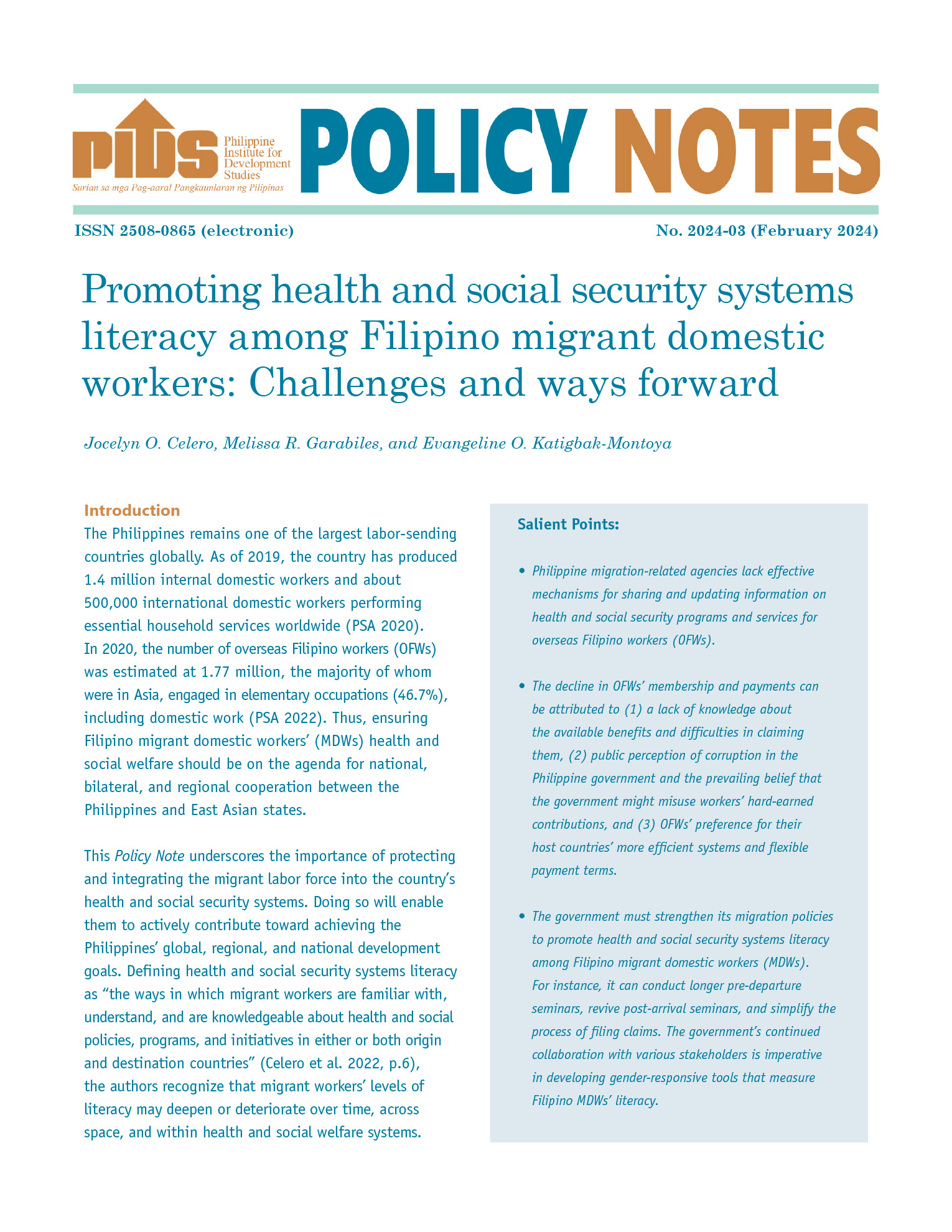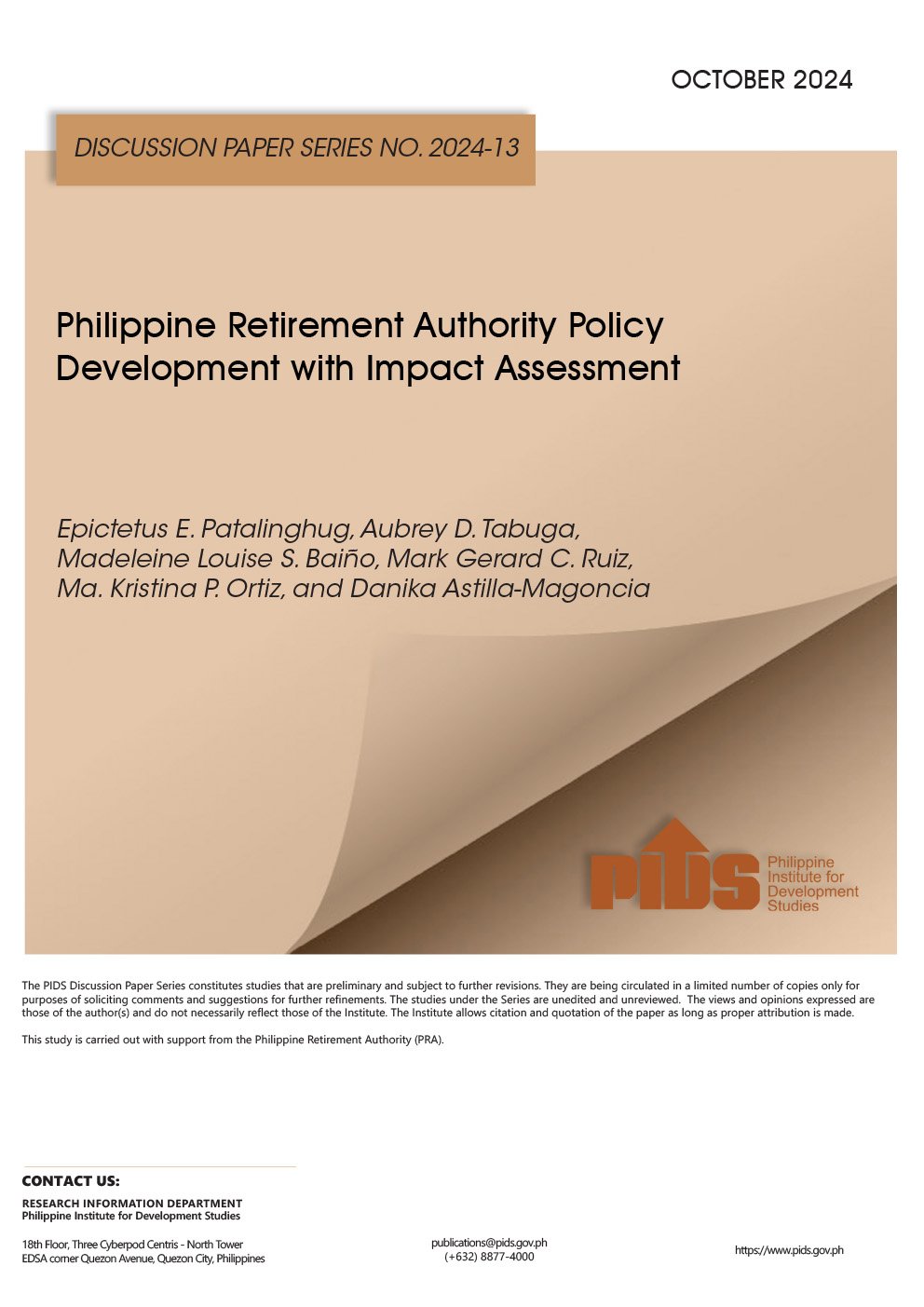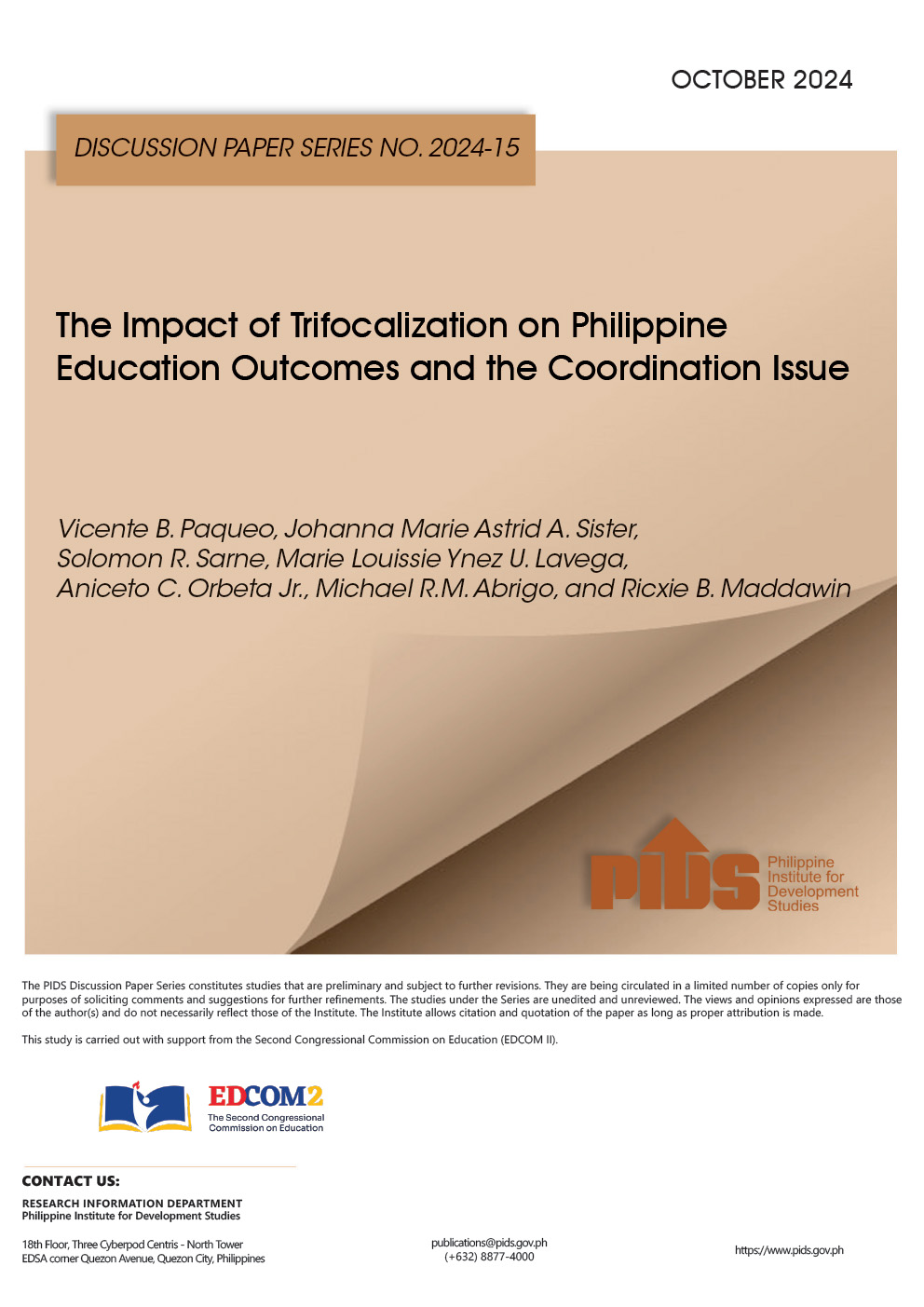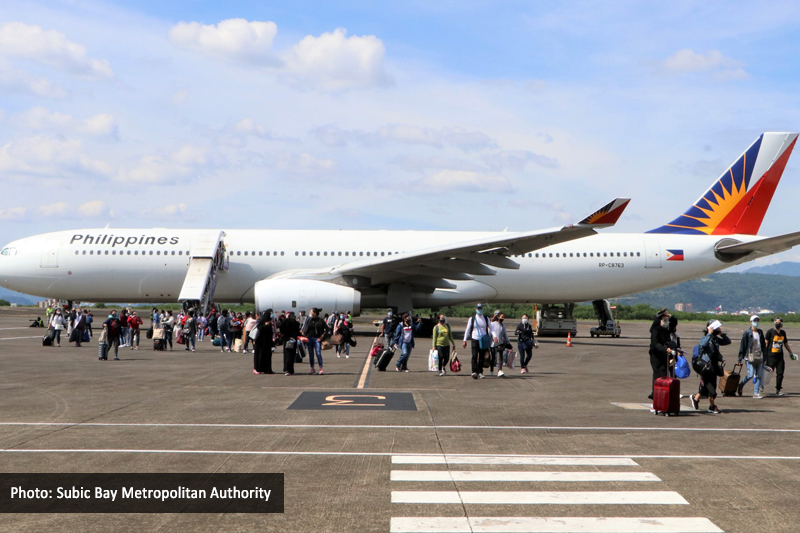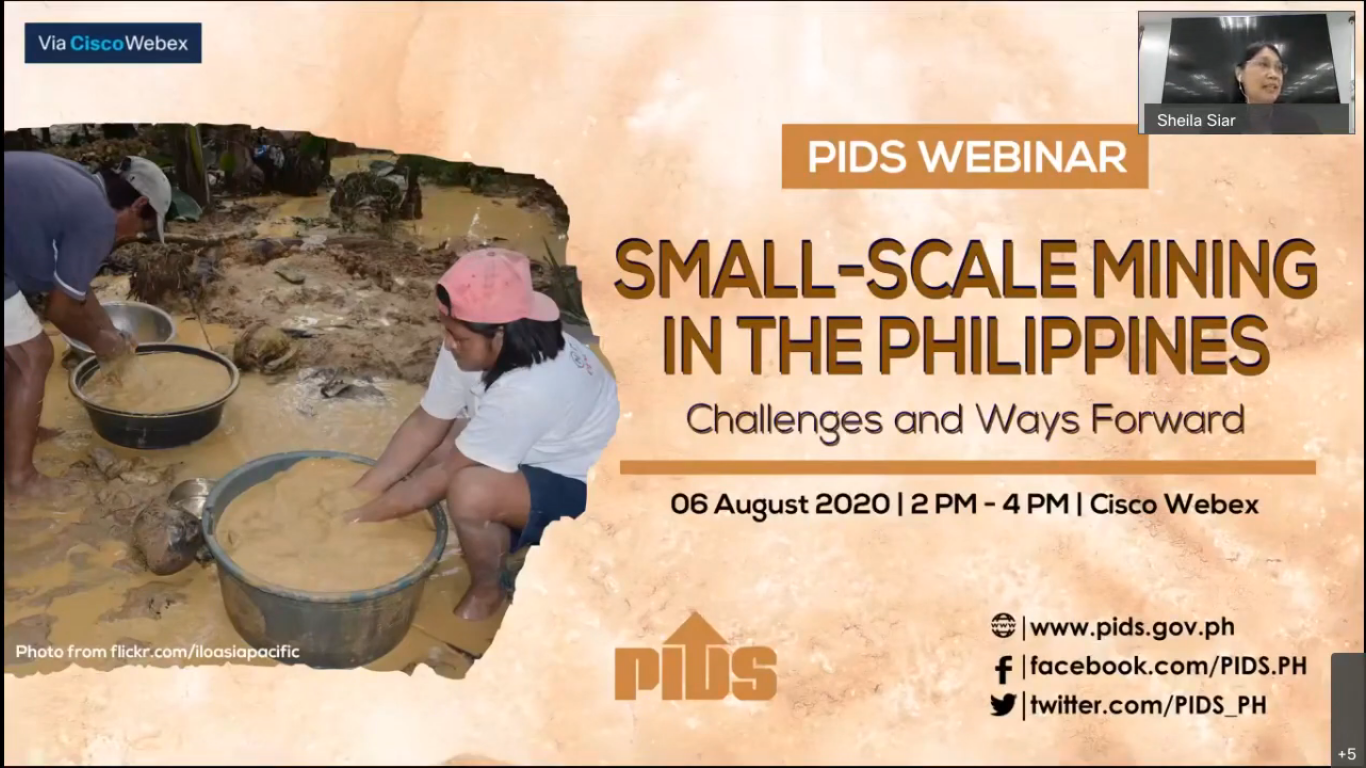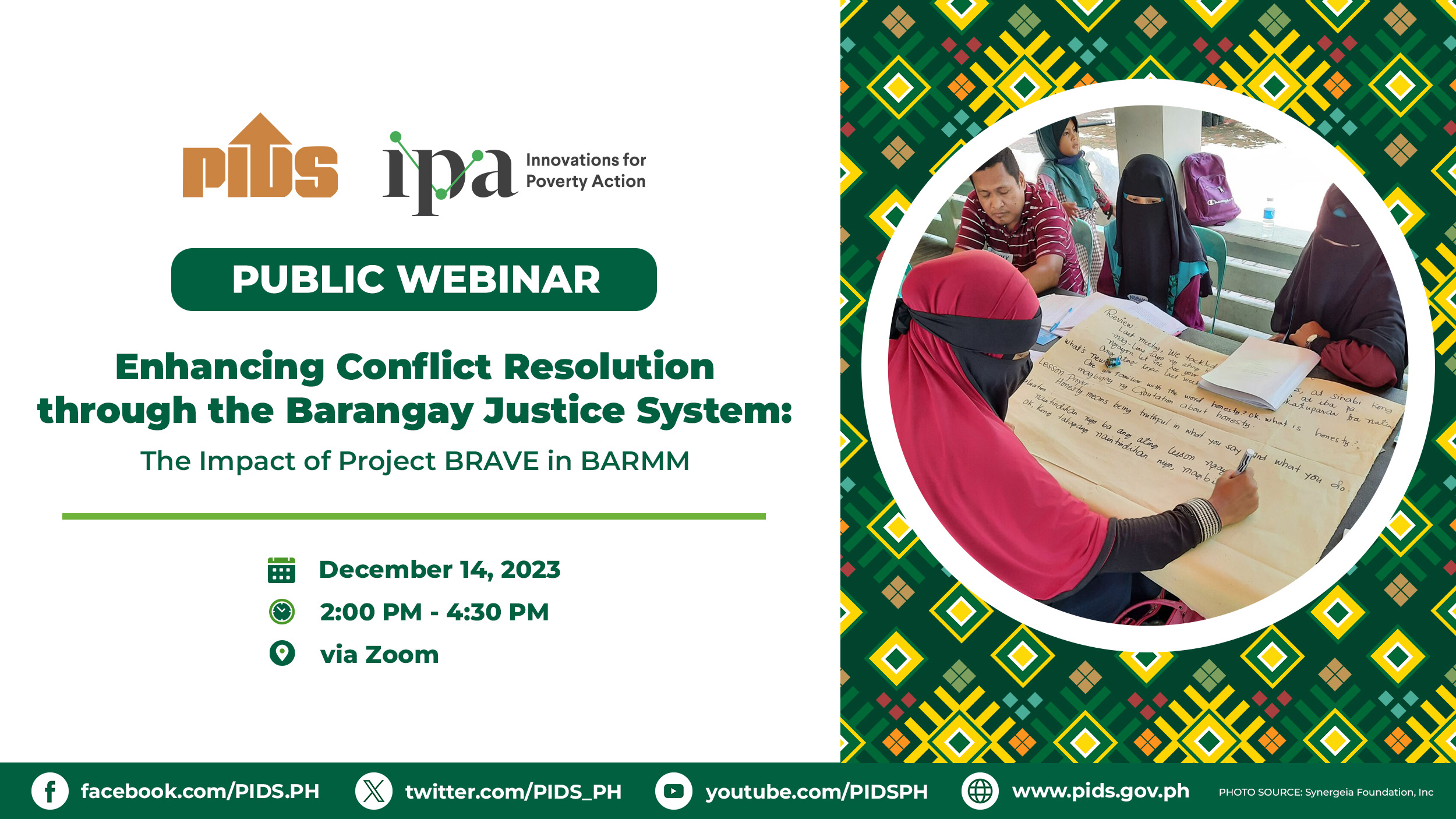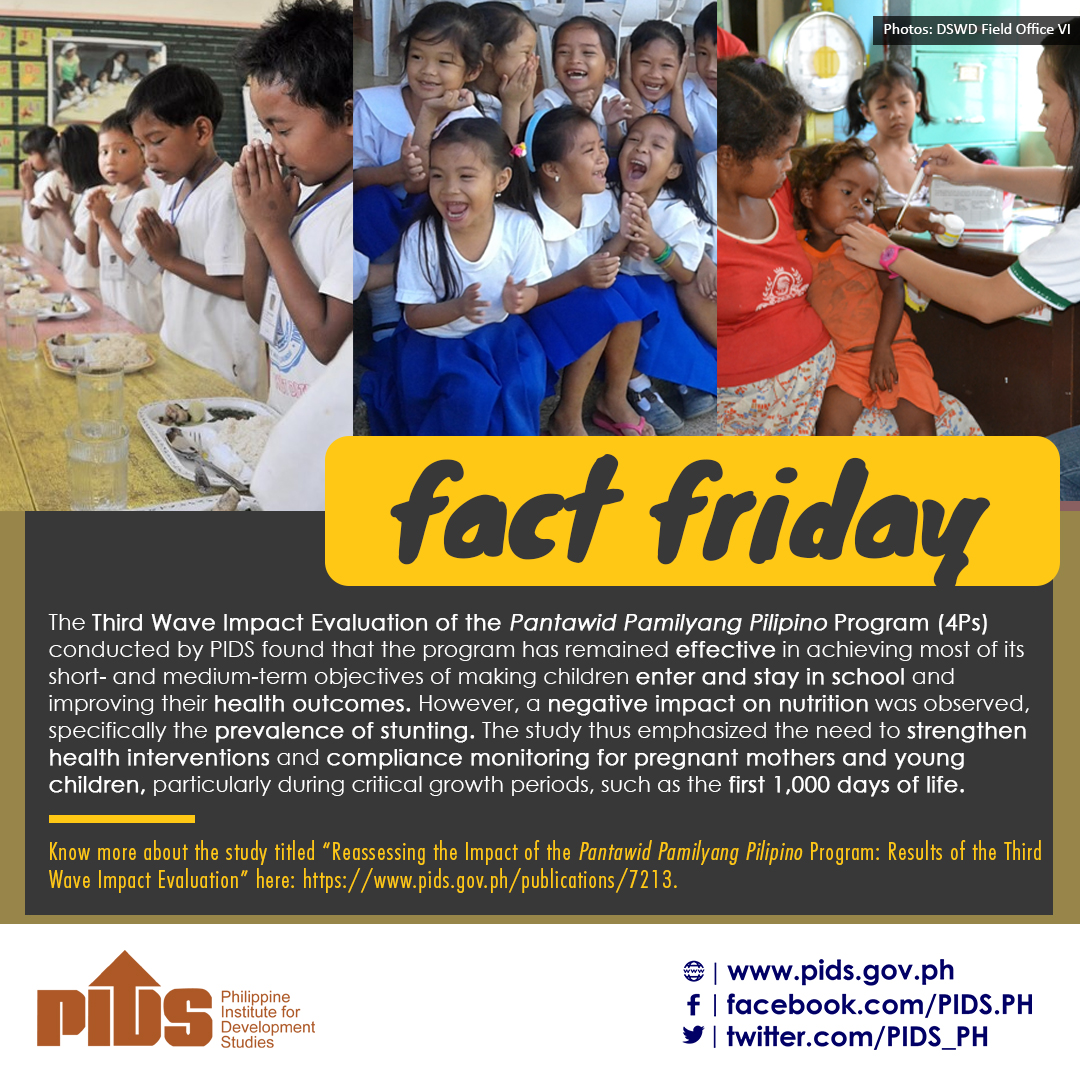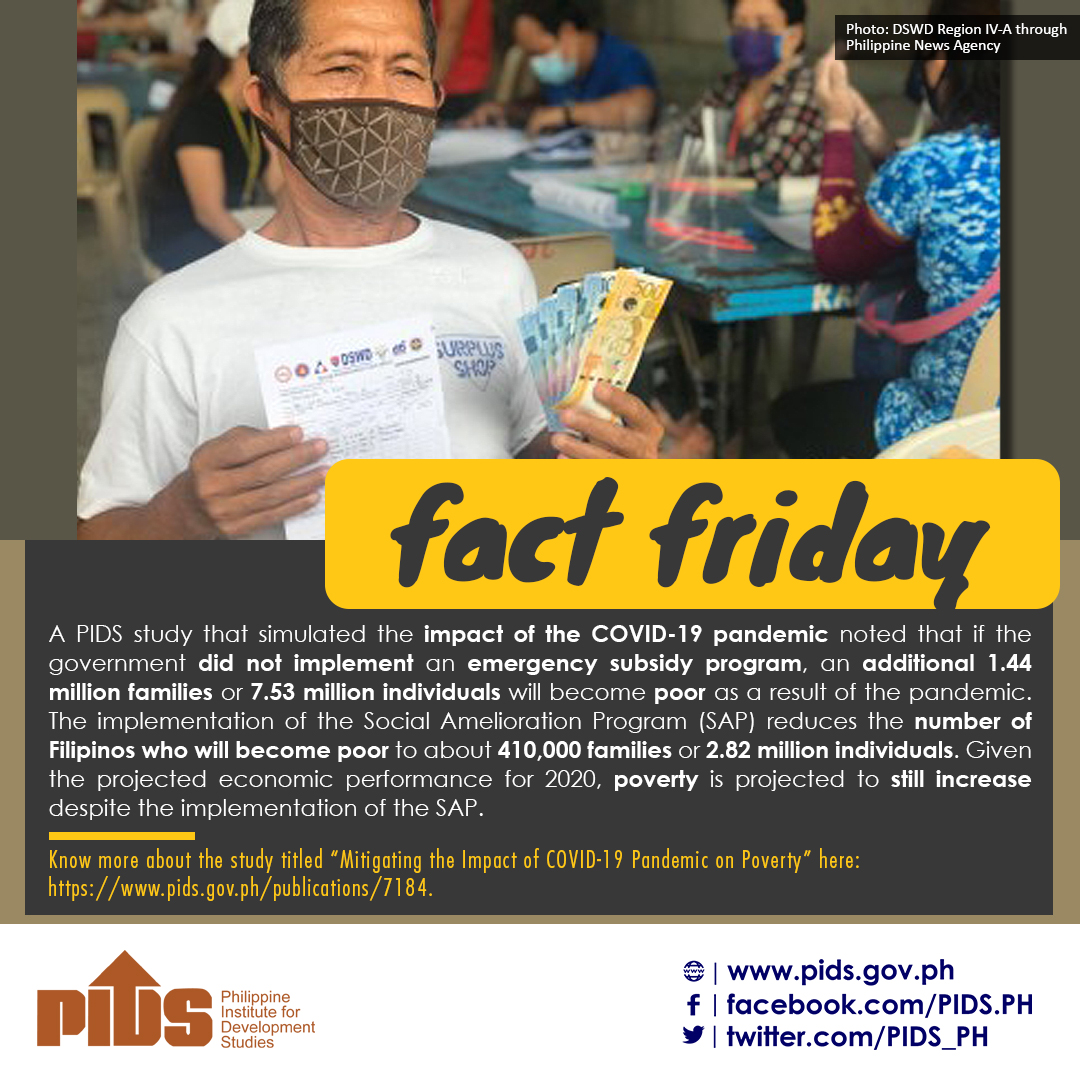Deepening the assistance to the nation’s poorest provided by the Aquino administration’s conditional cash transfer (CCT) program, instead of merely expanding the number of beneficiaries, may have a better impact on human capital development, the Philippine Institute for Development Studies (PIDS) said. In a PIDS policy note, Senior Research Fellow Celia Reyes and Supervising Research Specialist Aubrey Tabuga said that it is relevant for the Pantawid Pamilyang Pilipino Program (4Ps) to cover not only children aged 6 to 14 years old, but also those aged 15 to 18. “The recommended 18-year-old cutoff reflects that the child is expected to complete the 12 years of primary and secondary schools by the time he/she reaches 18 years old based on the recently adopted K+12 program,” PIDS said. “If this happens, the program would not only become more relevant to the Philippine case but would also be much closer to the Latin American models of conditional cash transfer programs which target extremely poor families with children aged up to 17 years,” the note added. Under the 4Ps, the targeted poor households receive cash grants every month for health and educational expenses. Each family can receive as much as P1,400 per month: P500 to cover the health component, and P300 each child for the educational component, for a maximum of three children per household.
Think tank suggests ways to deepen CCT impact
Malaya
Angela Celis

